The Super Computer In Your Head
You know how new tech rarely comes with detailed instructions anymore? You open the box and find a vague diagram or a short list of steps telling you how to operate your new gadget—Most of us barely read those. We’ve used technology for so long that we’ve developed an intuitive understanding of how to operate new devices. When tech isn’t straightforward, we can easily find YouTube tutorials or blog posts to learn how to use it. We’ve become accustomed to learning new tools because technology is always evolving and becoming more helpful in our lives.
I’ve spent countless hours learning editing, motion, and design programs. I can watch hours of tutorials and apply that information to whatever obstacle I’m currently facing. If I don’t know how to do something in a software, I know I can learn how to do it in real-time. I’ve learned to overcome tech-based obstacles quickly with straightforward, actionable advice.
However, I never take this approach with the most powerful tech I own—my brain. We often say the brain is “like” a computer when, in reality, it is a computer. A gooey, temperamental one, custom-built for each user and given out for free. Despite all that computing power, I only know how to use my brain’s basic functions. I don’t intuitively know how to intentionally automate tasks like I can with my iPhone’s shortcuts or how to clear up storage so there are no terabytes of useless junk floating around. I control my brain the way a beginner controls an Excel document—basic inputs and one-step calculations. Everything else I try to learn theoretically. I read long-winded books that make me think more about my brain and offer a tiny amount of actionable advice hidden within the text. These resources serve as a sort of valuetainment for me, similar to watching someone perform a demo of software or tell stories about their experiences. If my brain is a computer, I need to start learning how to use it like one. I practice using the tools on my computer but not the tool between my eyes.
Clean Your Brain: Optimizing Your Brain Like Your Computer
Regular Software Updates
If you treat your brain like a healthy computer, you should regularly update its software! Over time, your brain can begin to operate sub-optimally, causing you to behave negatively.
You can update your software by performing regular reflections to keep track of and diagnose how your life is being affected in beneficial and non-beneficial ways.
Weekly reflections allow you to check in on your past week and consciously assess what worked for you and what didn’t. By becoming aware of your weeks and months individually, you can more easily make changes to do more of what helps and less of what doesn’t. Reflections provide benchmarks and reference points to gauge how you feel throughout the year. This is like bug removal for your brain—identifying what does and doesn’t work, then making a plan to improve for the next update (week/month).
Third-Party Software
While we treat our brains like computers, we can also use other people’s optimization tools to assist our lives, like third-party software.
We can consume books and podcasts and practice deep thinking to “download” new perspectives, exercise our minds, and improve our perceptions of the world around us. When we consume information, we are essentially downloading data into our brains to be used later, so ensuring that we download beneficial content is crucial to a healthy operating system.
We can learn from courses, people along our life’s journey, and ask for help to further download new tools to live a fulfilling life. Other third-party software ideas include affirmations, religion, mindfulness, meditation, and social interaction within a community.
Optimize Storage
Whether we want to or not, we are always downloading new data into our brains, and this data takes up space. Have you ever noticed your computer running slower when it has too much storage? —The same thing happens to your mind. We download so much data every day that it’s hard not to accumulate junk, no matter how conscious we are. It’s important to optimize our brain storage and remove data that doesn’t serve us.
We can remove the junk from our brains through activities like journaling, which allows us to empty our thoughts onto pages and express them. There are likely other ways to remove junk data, even if I don’t currently know them.
It’s also crucial to spend some time removing the corrupt files that may be slowing down or even destroying your operating system. These corrupt files can include limiting beliefs, bad narratives, and negative self-talk.
This is just a simple overview of ideas to learn how to use the brain. Our minds are much more complex than computers, requiring us to improve our bodies and environments to fully take advantage of their capabilities. Over time, I hope to learn and get better at understanding how my brain works and then use that to my advantage. I believe that observing the brain and understanding its functions and abilities will improve life. No piece of technology can outperform our brains, so why not attempt to use them to their full capacity?

